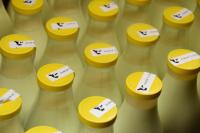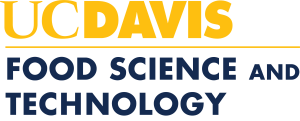
COURSE GOALS:
The course provides the biochemical, physicochemical, structural, and microbiological foundation to understand the composition, properties, and processability of milk. The course also introduces and discusses the major unit operations that are utilized in milk processing. Various dairy products will be discussed from the perspective of changes in milk, and its constituents, upon processing.
ENTRY LEVEL: BIS 2A; BIS 102
COURSE FORMAT: The course is designed to optimize student participation in the learning process. Group efforts will include regular discussions, review of selected research articles and publications, preparation of summary information, and demonstrations.
TOPICAL OUTLINE:
- General composition and molecular components of milk.
- Physical and chemical characterization of milk and its individual components.
- Composition, structure, and functionality of milk proteins
- Composition, structure, and functionality of milk lipid.
- Milk carbohydrates (chemistry and physical properties).
- Milk minerals (chemistry and physical properties).
- Microbiology of raw milk
- Cold storage of milk and its effects on milk composition, Physico-chemical-, microbiological-, and processability-properties.
- Unit operations in milk processing: Separation, heat treatment, homogenization, evaporation, spray-drying
- Enzymatic and acid coagulation of milk
- Starter cultures in milk processing
- Fermented milk products
- Cheese
GRADES: Students will be responsible for all information presented in class (including discussions) and for information to be found in the assigned reading. Letter grades will be assigned on the basis of one mid-term exam (30%), contribution to class discussion (15%), and a final examination (55%).
